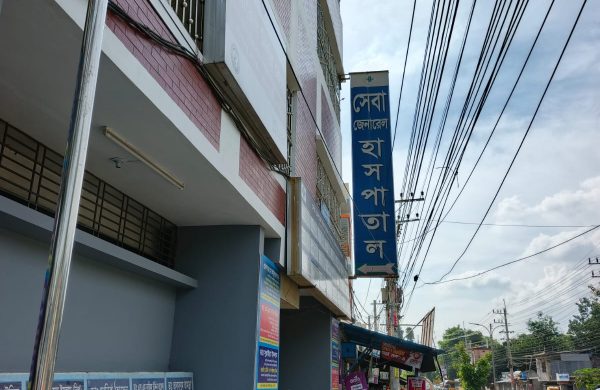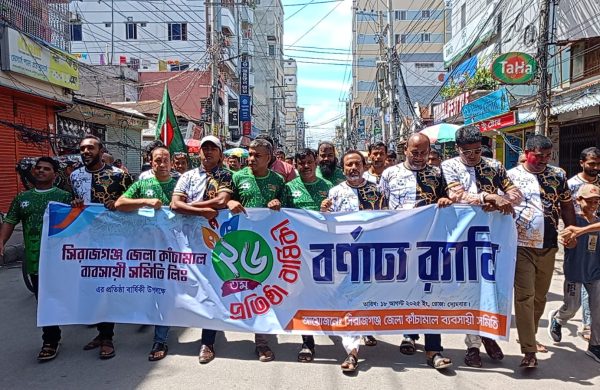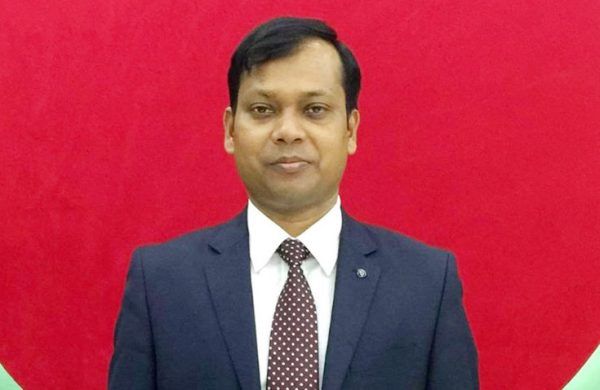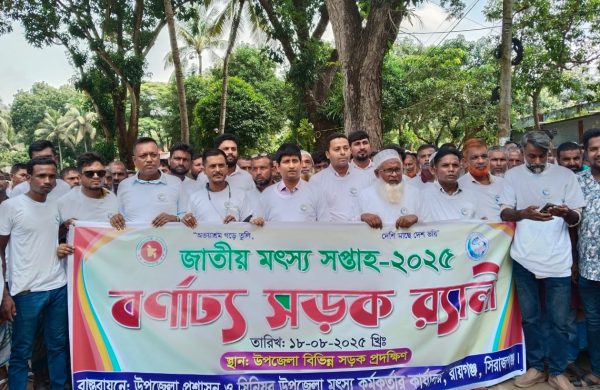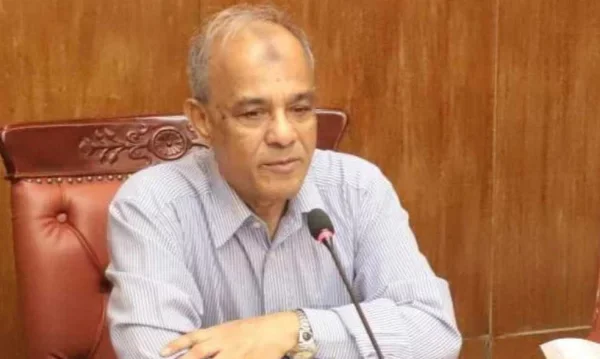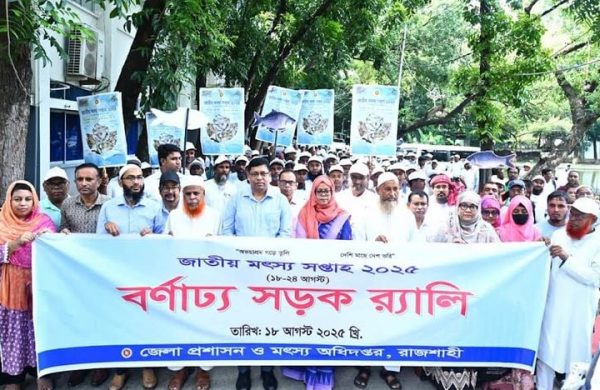Risk of mugging higher at specific times, 1108 accused released on bail in 3 months
- Update Time : Monday, August 18, 2025
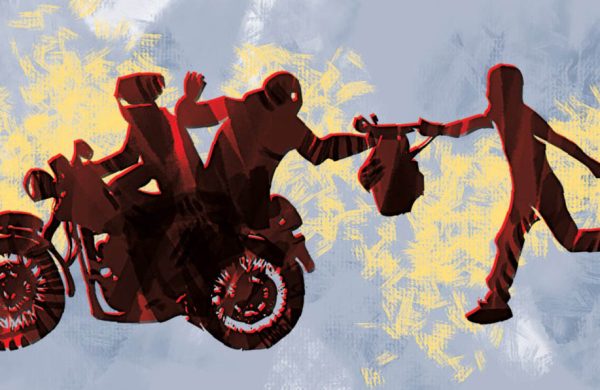
TDS Desk:
Mugging has become a major source of anxiety for pedestrians in many areas of the capital.
The risk is particularly high in the evening, at night and in the early morning hours.
The release of various video footages showing offenders on the streets staging attacks, injuring victims with sharp weapons and looting valuables at knifepoint has further fuelled public fear.
Amid such circumstances, a total of 1,108 accused in mugging cases have been released on bail over the past three months in Dhaka.
According to information obtained from a relevant source at Police Headquarters, 425 individuals were released in May, 305 in June and 378 in July by the courts in Dhaka.
These suspects were accused in 1,058 cases filed with 50 police stations under the Dhaka Metropolitan Police (DMP).
The police stated that some of those granted bail were directly involved in the crimes.
Some had been caught red-handed, while others were arrested following their identification during investigation.
Several were detained while preparing for mugging or as suspected muggers.
In certain cases, suspects named in the charge sheet submitted to court were also granted bail.
Following the public uprising on 5 August last year, many muggers took advantage of the collapse of police operations and became reckless in several parts of the capital.
During this period, incidents of murder at the hands of muggers were also reported. On 21 April this year, a young man named Md Arman Hossain, 22, was stabbed to death by muggers in the Tejgaon industrial area. His family reported that he was killed for resisting a mugging attempt.
According to court sources, between August last year and March of this year, seven people were killed in Dhaka by muggers.
In the aftermath of the uprising, many neighbourhoods in Dhaka organised community night patrols. Later, as police operations gradually returned to normal, anti-mugging drives were reinitiated.
Alongside the police, the armed forces also intensified operations, leading to the arrest of many muggers and miscreants in different areas.
A senior DMP official told journalist “We are making considerable efforts to apprehend offenders, but many are released on bail within a short time. They then return to mugging, forcing us to pursue the same criminals repeatedly.”
A source at Police Headquarters said that field-level officers have repeatedly complained that muggers released on bail were re-engaging in crime.
Consequently, mugging cases have since been placed under special monitoring every month. In addition to the records of cases and arrests, data on bail has also been maintained, which has revealed a significant number of suspects being released.
When asked about this issue, Inspector General of Police (IGP) Baharul Alam told Journalist, “Following anti-mugging drives and the arrest of offenders, instructions have been given to ensure effective measures from the police to secure convictions. However, the role of the prosecution branch and state lawyers in court is crucial to ensuring punishment for actual offenders.”
The IGP further stated that instructions have been given to the relevant branches of the police to play an effective role in this regard.
CHARGE-SHEETED ACCUSED ALSO RECEIVING BAIL
Under existing law, cases of mugging are prosecuted under provisions relating to robbery and dacoity. Where the number of accused is between one and four, the offence is considered robbery; if more than four individuals are involved, it is treated as dacoity.
According to police sources, a large portion of those granted bail in the past three months were named accused in mugging cases.
In other words, specific offences were recorded against them, with their names mentioned in the First Information Report (FIR).
For instance, of the 378 individuals released on bail in July, 148 were named accused. Another 198 had been arrested as suspects, one individual was arrested following his identification during investigation, and no detailed information was available regarding the remaining 31.
Analysis of data from the preceding two months shows that in May, of the 425 suspects released on bail, 215 were arrested as suspects, 131 were named accused, and 16 were arrested after being identified during investigation.
No detailed information was available for 63 others. In June, of the 305 suspects granted bail, 150 were named accused.
This category also includes charge-sheeted accused. For example, on 20 March, police from Uttara West Police Station conducted a raid on the Abdullahpur flyover while a group was preparing for a mugging.
Four individuals were arrested, and machetes, knives, and daggers were recovered from them. Police confirmed that a charge sheet for this case has been submitted to court. One of the accused named in that charge sheet, Rubel Mia, 23, was granted bail last month.
HOW BAIL IS BEING GRANTED
Lawyers said that until an investigation is concluded, it is difficult to prevent an accused person from securing bail.
Regardless of the severity of the crime, bail is generally regarded as a citizen’s right until trial is completed. The real challenge, however, lies in ensuring that genuine offenders are convicted.
Discussions with relevant individuals reveal that the prosecution branch and state lawyers play a critical role in cases where genuine offenders are granted bail.
The extent to which they present arguments and evidence in opposition to bail applications is an important factor. Allegations exist that, in many cases, strong arguments are not put forward in court to oppose bail for actual offenders.
There are also claims that police sometimes fail to file cases under the appropriate legal provisions.
Instead, muggers are shown as arrested under previously filed cases and sent to court, without properly presenting the details of the actual offence.
Furthermore, delays in investigations into such cases are not uncommon. In response, Police Headquarters has issued instructions to strengthen monitoring of these matters. They have been directed to ensure that cases are filed under the correct legal provisions, and to prevent cases being filed under weaker charges. Additionally, the police have been instructed to submit charge sheets at the earliest possible stage once evidence has been gathered.
On 15 April, the weakness of case records was also highlighted in an order issued by Dhaka Additional Chief Metropolitan Magistrate Md Zakir Hossain.
He noted that following the rise in mugging incidents in the capital, numerous cases were filed. However, in many cases, accused were shown as unidentified suspects and simply ‘forwarded’ to the court.
Many case files did not provide detailed descriptions or explanations regarding the accused’s involvement, which created grounds for bail.
Dhaka Metropolitan Sessions Judge Court’s Chief Public Prosecutor (PP), Omar Faruk Faruki, told Journalists that bail is generally not granted if an accused is caught red-handed during a mugging, or if he has prior cases against him.
However, those arrested merely as suspects cannot be detained indefinitely; in most cases, they are released on bail after five to six months.
The state prosecutor added that it generally takes at least one year to file a charge sheet after completing investigations into mugging cases.
Only after this stage does the opportunity arise for prosecutors to play their role in court. Before that, responsibility largely lies with the police. For this reason, it is essential to file correct charges under the appropriate legal provisions and to submit the charge sheet promptly.


